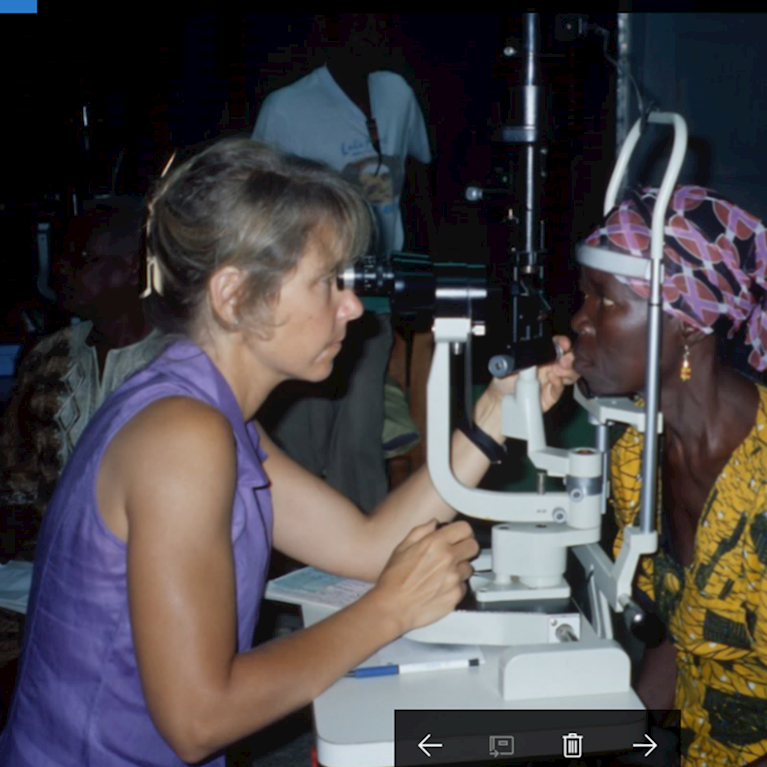

Global Initiatives
Climate change is the greatest global health threat facing the world in the 21st century, but it is also the greatest opportunity. Gain a deeper understanding of the impact of hospitals and providers on climate change, as well as ideas on how eye care systems around the world can proactively reduce carbon emissions.
We use cookies to measure site performance and improve your experience. By continuing to use this site, you agree to our Privacy Policy and Legal Notice.

Why Health Care Needs Sustainable Waste Stream Management
This issue describes the moral and ethical obligation of healthcare professionals with respect to the "four prima facie moral principles" - justice, beneficence, non-maleficence, and autonomy. Clinicians can "do no harm" by minimizing toxic byproducts and waste generated from medical care, "do good" by being environmentally responsible and engage in policy change, and "provide equal treatment" by advancing the voices of developing countries that bear the consequences of disproportionate burden of medical waste.
View at AMA's Journal of Ethics
A Model for Low-Carbon Eye Care in the Race to Zero
Healthcare is a significant contributor to climate change. Rengaraj Venkatesh, MD, talks about Aravind Eye Care System's low-carbon model in India: alternate energy sources, transport, infrastructure, equipment maintenance, and more.
Carbon Footprint of Cataract Surgery: India and UK
Aravind Eye Care System in India has created an effective and efficient model for cataract surgery, which reuses nearly all of its surgical materials rather than relying on single-use disposables. Previous studies show that their surgical outcomes are better than the UK's, on a variety of metrics.
Impact of Digital Technology & Equipment Maintenance
How can digital technologies reduce the carbon footprint of the healthcare industry? The answer is much further-reaching than simply electronic medical records: from managing chronic disease to reducing patient travel to streamlining the supply chain for glasses.
Design Principles for Green Hospitals
Architect Israel Gnararaj presents ideas for delivering "care that also takes care of the environment" through green hospitals. Constructing hospitals requires significant resources and energy consumption, so a conscious approach—from construction through the building's life cycle—can have a major impact on the environment.
Alternative Energy Sources for Healthcare
Aditi Modi, global project manager from SELCO Foundation, discusses how healthcare providers can look to alternative clean energy to be more environmentally friendly.
Leveraging Institutional Procurement for Mitigating Climate Change
Sanjay Kumar of Indian Railways explains how focusing on procurement and supply chain can be an effective intervention for mitigating climate change in healthcare delivery.
Next Steps and Commitments to Environmental Impact
Dr. Cassandra Thiel addresses the question: "how will you change the environmental footprint of your medical practice?" She also highlights several networks for medical professionals to collaborate on sustainable solutions.
Orbis Green Vision Center
Orbis Green Vision Centers, spread across India, are powered by solar energy and enable access to eye health services in a way that is energy-efficient and environmentally friendly. These Green Vision Centers have expanded access to primary eye care services in rural communities where a continuous supply of electricity or the use of diesel-powered generators may be a challenge.
Vinyl Council's PVC Recycling Program in Australia and New Zealand Operates in 280+ Hospitals and Facilities
The PVC Recycling in Hospitals program was started in Australia by the Vinyl Council in 2009 to safely recycle used PVC or vinyl medical products. Since then, the program has grown to recycle PVC medical products for over 280 hospitals and healthcare facilities across Australia and New Zealand. PVC is the most commonly used polymer in IV bags, face masks, and oxygen - altogether, these items can produce 2,500 tons of material that can be recycled into new products. Every ton of PVC that is recycled can prevent the production of new PVC, resulting in 80% less energy consumption and reduced carbon emissions. The Vinyl Council has developed training slides and booklets to help hospitals in Australia and New Zealand set up PVC Recycling programs.
The Carbon Footprint of Cataract Surgery in a French University Hospital
In this article, Ferrero and colleagues have estimated the direct and indirect emissions of carbon footprint of a cataract procedure carried out in Cochin University Hospital in Paris, France. They utilised a standardized method of Economic input-output Life Cycle Assessment (EIO-LCA) as a multicriteria tool to globally assess the environmental impact of their activity. The estimated carbon footprint of each procedure was 81.13kg of CO2eq (13.5 times of that calculated in India by Thiel et al.). Based on their practices, they have also suggested ways to reduce carbon emissions using the '5R strategy'.
How ophthalmologists can decarbonize eye care - A Review of Existing Sustainability Strategies and Steps Ophthalmologists Can Take
Understanding approaches to sustainability in cataract surgery and their risks and benefits. The authors conducted a literature review to identify the benefits and risks of sustainability interventions. These were organized into a decision tree for use by individual surgeons. Identified sustainability interventions fall into the domains of advocacy and education, pharmaceuticals, process, and supplies and waste.
Global Initiatives to Develop a Safe and More Sustainable Ophthalmic Practice
How Global Climate Initiatives Benefit the Health Sector
The Aravind Eye Care System in southern India is a leader in innovating sustainable and cost-effective health care delivery. Dr Rengaraj Venkatesh, chief of the Aravind Pondicherry Hospital, summarizes how Aravind has holistically reduced waste and emissions from the perspective of the operating room to the delivery of health care to the surrounding community.